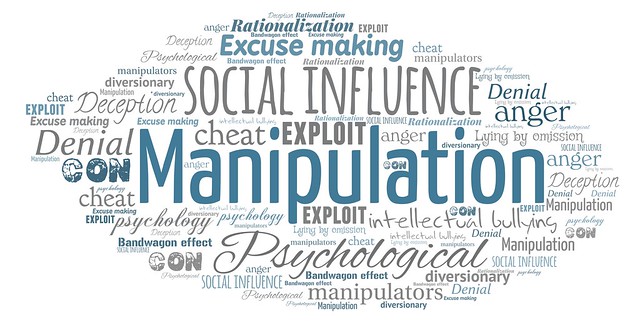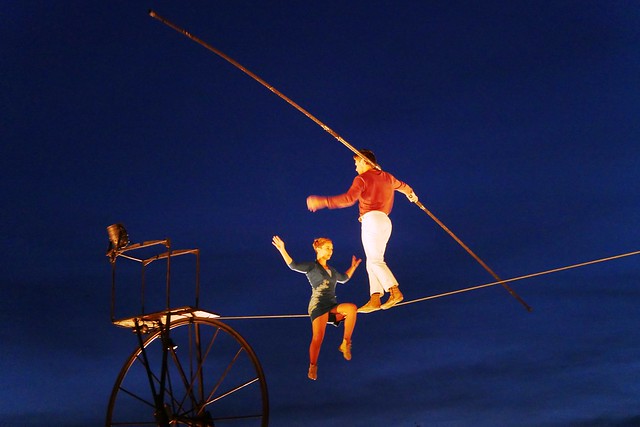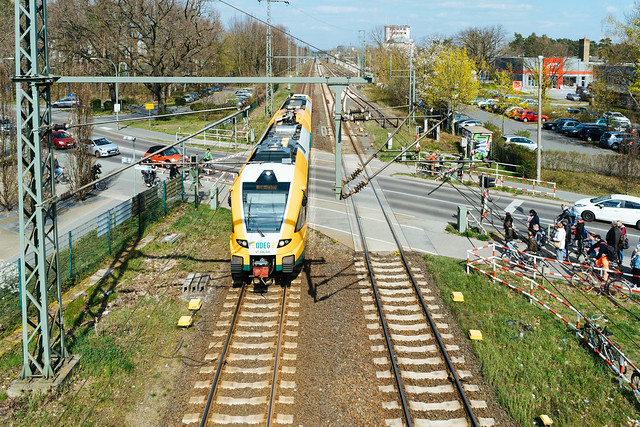blog
The need for leaders to influence
The need for the leader and the manager to influence effectively has always been important. Now – in an era of more rapid change than ever – factors of organisational culture that we used to take for granted relate to each other and to the external world in new and unfamiliar ways, setting both a new agenda and a new backdrop.
Organisational culture is changing
The concept of balance is changing: no longer is it an experience that is necessarily part of the leader’s day-to-day life, which can seem profoundly and frequently unbalanced. Reliability and constancy are changing. The rationale or justification for decisions is often unclear or may seem insubstantial. Prominent (and not so prominent) leaders worldwide are legitimising behaviours that used never to be considered remotely acceptable for a leader, amongst them flagrant dishonesty.
Emotional intelligence and the career path
Carving out a career path within one’s organisation in a way which is sophisticated enough to handle the opacity of ambiguous situations, where personal agendas are both urgent and unclear, and where the stakes are high, is a tricky business. It demands higher levels of emotional intelligence than ever to identify and be aware of one’s own emotions, to manage them moment-to-moment so as to ensure they express themselves appropriately, and to manage the emotions of others (particularly those who wield power) who may be struggling to manage their own emotions.
Empathy as a means of influence
In a coaching context, leaders can both explore their own place and experiment with taking the position of those they seek to influence in order to appreciate and experience how those people may be genuinely persuaded by the leader’s case. This is empathy at work, in a systemic context – the capacity to be in another’s shoes and to experience their context. In my experience it can be powerful stuff, and can bring useful challenge to approaches to persuasion that a leader may have assumed would be effective, and it meshes with the leader’s emotional intelligence. ‘Just do it!’ is, for example, often highlighted as deeply ineffective.
Compassion can be even more effective than empathy
I’m coming across more instances of lack of integrity at senior levels, and this poses a dilemma for the leader who wants to stand up for either the values which their organisation claims or for their own values. At its most acute, the individual may be fearful of a threat to their career, experiencing the situation as confrontation. I am finding that an approach for them which embraces compassion – for themselves and for others – makes all the difference. It changes their perception of their own place and potential to make a difference, it brings a change of attitude, body language and verbal framing, and it elicits new kinds of response from others. Influencing becomes a different ball-game.
Compassion enables resilience and courage
This is a step on from empathy. While empathy is the capacity to resonate emotionally with the experiences of others, compassion encompasses emotional resonance as well as a wish to act in order to change the situation or seek a solution. Interestingly, compassion also increases resilience. As Thupten Jinpa, a Tibetan Buddhist scholar, whom I had the privilege of hearing at a recent Action for Happiness event, remarks, compassion enables us to broaden our perspective and enables greater courage. It strikes me that this is significant when influencing – up, down and across – is on the agenda.
And it works.
In a world and in organisations which seem more turbulent and unpredictable increasingly often, and in a more intense way than ever, we need more human, more elegant and more sophisticated ways of being and behaving.
Photo by Ben Taylor via Compfight
Influencing through compassion
The need for the leader and the manager to influence effectively has always been important. Now, however, their contexts are becoming more uncertain and more challenging. I’m coming across more instances of lack of integrity at senior levels, and this poses a dilemma for the leader who wants to stand up for either the values which their organisation claims or for their own values. I'm finding that an approach for them which embraces compassion – for themselves and for others – can make all the difference.
Read more »Trust and safety in coaching
My article 'Trust and safety in coaching' has been published in the September edition of Coaching at Work. When a client trusts their coach they can feel safe enough to engage with their inner world - and a certain kind of magic can happen. The richness of both dialogue and data that is enabled by deep trust can uniquely empower the client to face difficult or energising truths, and can also stretch the boundaries of what they'd previously thought was possible.
Read more »Seeking purpose - and being part of the whole
Albert Einstein wrote: "A human being is part of a whole, called by us the 'Universe,' a part limited in time and space. He experiences himself, his thoughts and feelings, as something separated from the rest - a kind of optical delusion of his consciousness. This delusion is a kind of prison for us…” This resonates for me as I coach talented senior people who create stellar careers. Some of them realise they feel restricted because their lives don’t integrate what really matters to them. They start asking 'What’s my purpose in getting to the top?’ rather than ‘How can I get to the top?’. This is rich and fertile territory for coaching, which enables an individual, in a risk-free environment, to explore, surface, clarify and articulate what meaning and purpose is for them and to become connected to the bigger whole.
Read more »Trapped in the detail
The remit of leaders is to develop and drive strategy, and to inspire its implementation. However, those in leadership roles can find themselves trapped in the detail of the operational. If they’re inappropriately involved in these areas, their teams will lack the bigger sense of direction, perspective and focus they need. The first important step for the leader is to realise that change needs to happen, and each will find their own way of implementing that change - perhaps through mindfully reviewing old loyalties to ideas and people, or surfacing wilful blindness, or speaking truth to power. Courage and resilience are fundamental to the change that's needed, along with self-awareness and systemic awareness.
Read more »Confidence on the coaching agenda
Confidence is the result of resolving or settling issues which may be related to identity, belonging, self-esteem, self-acceptance, resilience, the culture of the client’s organisation, or indeed countless other issues which interrelate, intersect and are interdependent. It manifests in a host of different ways, including effectiveness, efficiency, assertiveness, finding one’s voice, creativity, more balanced relationships, the resolution of conflict, respect and care for one’s own wellbeing, a reduction in stress, and a sense of personal peace. Leaders who constantly build the confidence of their people see that its relationship with the successful release of potential is direct and significant.
Read more »Parallel or converging?
My article 'Parallel or converging?', published in the May/June 2019 edition of Coaching at Work, takes a geometrical look at how I interpret my own experience, the client's wellbeing, and the importance of neither projecting onto the client, nor converging nor colluding nor getting drawn in to a parllel process.
Read more »Burning out - and recovering health
I’m coaching two individuals who are on the verge of burning out. Both are hugely committed to their jobs and their organisations, both are talented, and both are high achievers. And no-one in their workplaces has looked beyond their stellar performance or considered what it costs them on a personal basis to deliver that level of performance. No-one has guided them back towards a healthy way of working. A first useful step for them is to engage with, and accept, the tricky task of facing the truth of what is happening. And the second step is a visit to the GP or to Occupational Health.
Read more »Why don't you hear me?
Talented people may feel a sense of isolation – lonely (nearly) at the top of their organisations - either because their perceived currency has diminished, or because it has been inconvenient to hear them, or because established hierarchies and power structures don’t allow their voices to be heard and their true value to be released. There is no simple, linear solution: the answer lies in a blend of self-awareness, mindfulness, systemic awareness, finding your voice, multiple perspectives to broaden your thinking, and listening to your intuition and your wisdom.
Read more »The end and the beginning
My article 'The end and the beginning' - Coaching at Work's reflection column in the March/April issue - takes as its context the Buddhist wisdom that what the caterpillar perceives as the end, to the butterfly is just the beginning. I consider my contrasting experience in working with, on the one hand, clients who have real energy for change, and, on the other, clients who resist change. Both endings and beginnings need respect for their time and their process.
Read more »The uncertain and the unknown
Uncertainty is an inevitable part of both our personal lives and our organisational lives. Self-awareness, self-understanding, and awareness of the systems we’re part of give us a foundation of ‘the known’ in a context where much may be unknown. This, in turn, can give us a greater sense of safety and agency. In addition, the acceptance of what is – acceptance of the now – is perhaps the most powerful source of calm in the turbulence of uncertainty. Mindfulness – awareness that arises through paying attention, on purpose, in the present moment, non-judgementally - encourages focus and distances us from distracting thoughts and emotions. Not only is it relaxing, but it also nurtures a quiet confidence in the present moment.
Read more »











